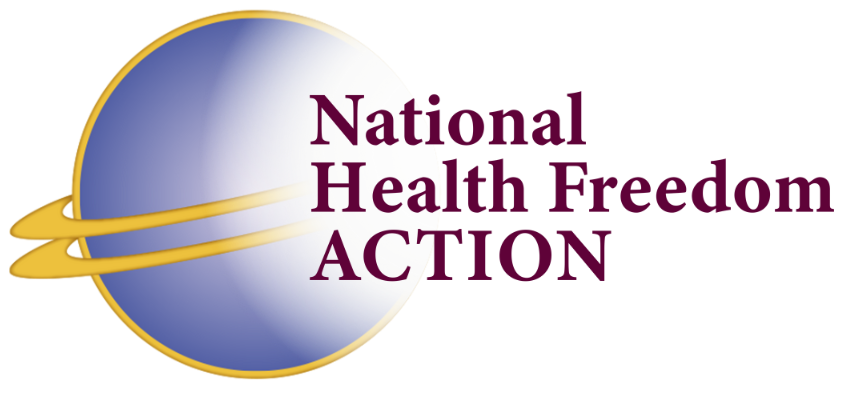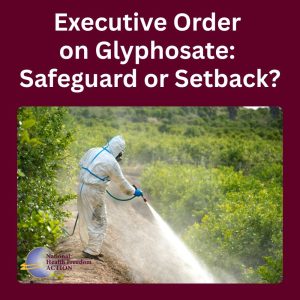
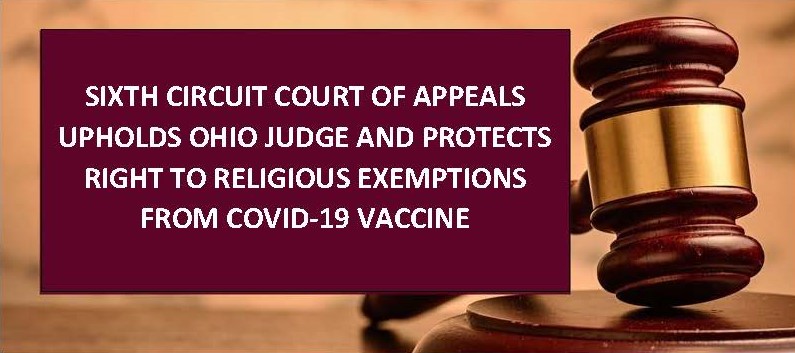
Air Force Members Win Again: Court of Appeals Upholds Ohio Judge and Protects Right to Religious Exemptions
From COVID-19 Vaccine
On August 2, we reported on the Ohio US District Court judge who found that the Air Force was systematically subverting the process for religious exemption requests for the COVID-19 vaccine. Now, on November 29, the Sixth Circuit Court of Appeals has upheld this decision in a win for health and religious freedom. Siri Glimstad, one of the law firms suing the Air Force, issued a press release the same day describing this important ruling: They note that the appeals court upheld both class action certification and a class-wide national injunction that is protecting over 10,000 Air Force members from “being punished and separated.” The press release quotes the appellate court as stating that under the Religious Freedom Restoration Act (RFRA), “the Air Force wrongly relied on its ‘broadly formulated’ reasons for the vaccine mandate to deny specific exemptions to the Plaintiffs, especially since it has granted secular exemptions to their colleagues.” The Court went on, “[t]he Plaintiffs have offered ‘[s]ignificant proof’—indeed, the evidence is undisputed—that the Air Force has a ‘uniform’ practice of denying religious exemptions to anyone who wants to remain in the service.” (Italics added.)
10,000 Religious Exemption Requests
The appellate opinion by Judge Eric E. Murphy in this case of Doster v. Kendall shows us that the rule of law may yet survive the COVID-19 era. Murphy states that over 500,000 Air Force service members were ordered to get the COVID-19 vaccine, and that, “Some 10,000 members with a wide array of duties have requested religious exemptions from this mandate.” He goes on, “The Air Force has granted only about 135 of these requests and only to those already planning to leave the service. Yet it has granted thousands of other exemptions for medical reasons (such as a pregnancy or allergy) or administrative reasons (such as a looming retirement).”
Christian and Buddhist Beliefs Implicated
Most of the named plaintiffs objected to the COVID-19 vaccines based on the use of aborted fetal cell lines in testing and development of the products. Plaintiff Doster listed this factor in explaining why the vaccine would impede his beliefs as a “Born-Again Christian.” And Lieutenant Colonel Jason Anderson, another plaintiff, put forth,“that his Buddhist faith prohibited him from presently taking a vaccine.”A military chaplain had recommended giving Doster an exemption due to overwhelming evidence of sincerity, such as Doster leading a men’s worship group at the Air Force Academy and reporting that his wife is employed “at a pro-life, non-profit organization.”
What is the Religious Freedom Restoration Act?
The RFRA was a response by the Congress when the Supreme Court altered its interpretation of the Free Exercise Clause of the First Amendment. The high court had previously said that laws which substantially burden religion must pass a “strict scrutiny” test. But in a 1990 decision, the Court ruled differently and held, “that neutral and generally applicable laws categorically comport with the Free Exercise Clause.” With the RFRA, the US Congress aimed to restore the strict-scrutiny test. Spelling out this test, RFRA states the government must show both a compelling interest and that it used the least restrictive means available to achieve its purpose to justify a law implicating religious practice.
Air Force’s Arguments Confirm a Class-Wide Common Question
In the course of the court’s decision, Murphy reviewed and rejected many arguments made by government attorneys; a few examples follow. The Air Force argued that it had not been discriminatory in denying religious exemptions because religious exemptions are “supposedly” permanent while other exemptions are supposedly temporary. Judge Murphy notes that if the Air Force can show the different exemptions are not “comparable” it might be able to justify different treatment under both the First Amendment and the RFRA. But the Air Force’s reliance on a “common answer” to justify disparate treatment of the entire class of vaccine reluctant service member only “confirms that the Plaintiffs raise a common question.”
RFRA Not a Second-Class Civil Rights Law
Next, the Air Force argued that even if it followed the practices and policies pointed to by the plaintiffs, it did not violate the RFRA. Remarkably, the Air Force said that the RFRA “gets triggered only in judicial proceedings, at which point it must come up with sufficient justifications for its actions under strict scrutiny.” At oral argument the Air Force attorneys stated, “more or less yes” to the question of whether they held a view that, “[it does] not have to worry about RFRA until somebody sues.” But Murphy’s opinion responded that,“We see nothing in RFRA’s text that makes the law a second-class civil-rights statute in the way that the Air Force claims. That text imposes a categorical limit on government: it ‘shall not substantially burden a person’s exercise of religion’ unless it can satisfy strict scrutiny.” (Italics added.)
Now more than ever it is important that we use the tools that are available to us as Americans.
Your donation makes a huge difference in our ability to educate, foster and mobilize with people like you in states across the country.
Together we can create the “change we wish to see in the world”. Change that will protect our rights to make choices about our own health and the health of our children.
Donate by Credit Card, Paypal or by mail
NHFA is a 501(c)4 lobbying organization, therefore your donations are not tax deductible.
RECENT NEWS


EPA Deregulation of Clean Air and Water: does it go too far?
February 19, 2026
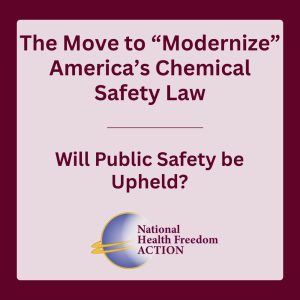
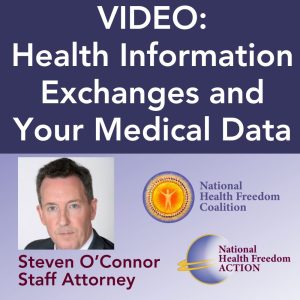
Video: Health Information Exchanges and Your Medical Data
February 5, 2026
